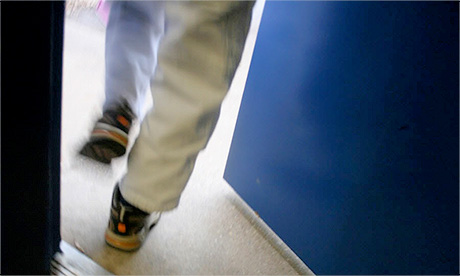A Catholic is bound to view every act of apostasy or schism as spiritual suicide, a choice against life.
This characterisation is borne out by three recent columns written by Catholics who have left the Church over the sex abuse scandals.
None of the authors proposes any higher, truer teaching than the Catholic faith. None anticipates a happier tomorrow.
Each column is, in its way, a cry of despair.
- Melinda Henneberger, a journalist who knew and admired Archbishop Theodore McCarrick, has announced that she is leaving the Church – without a clear idea of what comes next: “I’m not even sure there’s such a thing as a former Catholic, but I’m about to find out.”
- Melinda Selmys, a blogger at Patheos, has decided that by remaining Catholic she was “enabling the abusive people who were using the name of God to promulgate a doctrine that was a lot more draconian than what I seemed to believe.”
- Damon Linker, a columnist at The Week, has resolved to leave behind the “unbearable ugliness of the Catholic Church”.
All of these writers are following a trail blazed by Rod Dreher, who left the Church after covering the abuse crisis in 2002.
Angry ex-Catholics
It is not an easy road, as Dreher has since observed. “The Protestants I’ve known who became Catholic were not angry at the church they left behind,” he writes.
By contrast, “The ex-Catholics I’ve known tend to be angry.”
Their anger suggests the disappointment of high ideals.
These ex-Catholic writers have not, to my knowledge, pulled their children out of primary schools, which according to some studies have higher rates of abuse than the Catholic Church.
Nor have they announced that they no longer watch NBC since the Matt Lauer scandal.
Dreher has acknowledged that the Orthodox Church, where he currently worships, is far from immune to financial and sexual corruption – but he can tolerate in the one Church what he could not in the other.
This reflects a truth acknowledged by both Catholic and ex-Catholic alike.
The Church proclaims a higher, more demanding teaching than any other religious assembly. Because Catholic aspirations are higher, Catholic sins are always more shocking.
“The greater the love, the greater the trust, and the greater the peril, the greater the disaster.”
Corruptio optimi pessima – or as DH Lawrence put it, “The greater the love, the greater the trust, and the greater the peril, the greater the disaster.”
No other religion could produce villains on the scale of Marcial Maciel or Archbishop McCarrick, because their crimes mock the most beautiful creed.
Linker is eloquent on this point: “When I converted to the Catholic Church 18 years ago, I did so in large part because I was deeply moved by the act of self-sacrifice that the church places at its heart.”
Because he sees the beauty of Catholic claims, he is repulsed by the brazenness of Catholic sin. Continue reading
- Image: Our Lady of Joy parish
